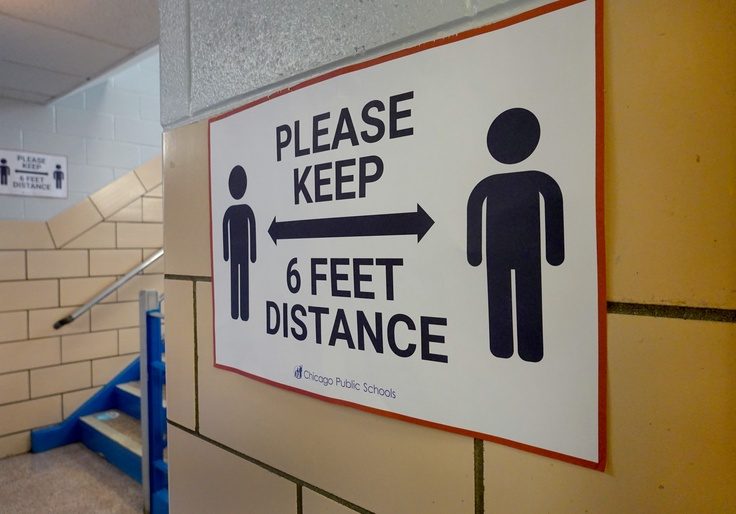The largest teachers' union in Los Angeles is working to prove that the battle lines in the fight to reopen schools are defined by race, going as far as contacting parents who speak out in support of opening schools to ascertain their race.
Miryam Qudrat, a Los Angeles parent of a middle schooler, says a "research specialist" for United Teachers Los Angeles (UTLA) emailed her to ask how she racially identifies. The inquiry came, the union researcher said, because she was quoted twice in the Los Angeles Times, both times to discuss dissatisfaction with the school closures.
The information was gathered for a UTLA report released Wednesday arguing that affluent voices are over-represented in media stories about school reopening. The union argues black and Latino voices aren't heard in "corporate media organizations," and was working to gather data to support the claim.
"They were trying to see if I would self-identify as Middle Eastern, so they could slam the Times for giving parents of children who supposedly weren't affected by COVID a voice," Qudrat told the Washington Free Beacon. "They're trying to frame it as a race problem, and trying to make me part of this racist group. It's a very dangerous direction they're taking this."
News coverage in recent weeks reveals an effort by the union to push the idea that there's a racial divide among parents over in-class instruction. Last month, for example, a union activist named Jsané Tyler was quoted as a "district parent" in the Los Angeles Times arguing that minority communities are happy the schools are closed.
"We know that a lot of white parents are calling for the reopening of schools—that is simply not the case with Black parents and other parents of color," Tyler, a public school employee who has been featured in the union's videos, said. "The majority of us don’t believe that students should be on campus right now because it’s just not safe."
Howard Blume, the education reporter who quoted Tyler, said he was unaware of her union activism. Tyler did not respond to inquiries into whether the union helped craft her comments.
UTLA said in a statement to local media that it abandoned the research project Qudrat was contacted for—not because the union thinks race isn't at play but, rather, because it turned out to be difficult to determine the race of parents like Qudrat.
"Race is also an important factor to be considered," said UTLA spokeswoman Anna Bakalis. "However, ultimately it was determined that it was not possible to accurately assess the race of individuals quoted."
The union apologized for the email released by Qudrat and said it was taken out of context. They also said none of the research on race was used and questions about it are a distraction.
"This particular outreach by the researcher was not authorized and nothing from that outreach is contained in the report," Bakalis said. "Nothing in the report seeks to identify the race of any individuals quoted."
Qudrat points, however, to comments made by union leadership that show the interest in race was larger than just one research project. In a January Facebook post, the union's president celebrated an Illinois school superintendent who said opening schools was "white supremacist thinking." The president's post took specific aim at "wealthy white and middle eastern parents" in Los Angeles. And earlier this week, the union said reopening schools would further "structural racism" in California.
Neither of Qudrat's quotes in the Los Angeles Times had anything to do with race. Last July, she was included in a story about parents considering alternatives to public schools, and a month later she was quoted in a story about parent involvement in coming up with a plan for the structure of the current school year.
"I was outraged by them trying to put me in the racist category because I want the schools to open," Qudrat said. "The malls, the restaurants, the banks, everything is open here—everyone is going back."
Studies show that students in minority households have been hurt most by school closures during the coronavirus pandemic. A recent analysis of San Francisco schools found black and hispanic students to be 60 percent more likely to miss virtual instruction.
